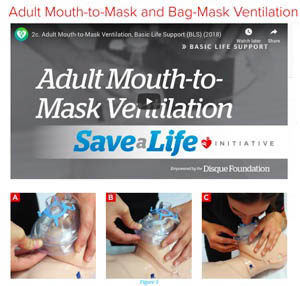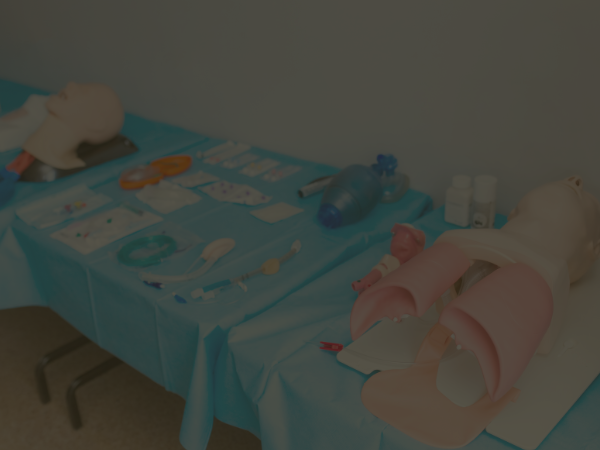Completing continuing education units (CEU) is a common topic among health care professionals. State Boards of Nursing require nurses complete a pre-set number of CEUs to maintain licensure. Failure to meet such obligations may incur additional fees for renewal, as well as a mandate to complete CEUs within a set timeline and pay the regular fee for renewal. CEUs provide the life-saving instruction for the latest standards to improve quality of care. Fortunately, RN online certificate programs, as well as those for Licensed Practical Nurses (LPNs), make keeping up with and getting your CEUs easier.
The world of CEU courses online is vast; figuring out which course to take is a time-consuming process. Furthermore, some courses are free, and others require payment for access to all courses or even a single course. To prevent unnecessary delays in renewing licensure, as well as ensure the well-being and safety of your patients, nurses need to understand their CEU requirements and which courses to take first.
How Many CEUs Do RNs and LPNs Need for Renewal
 CEUs are a necessary part of renewing a person’s nursing license for both RNs and Licensed Practical Nurses (LPNs). CEUs provide a means of ensuring nurses understand the latest best practices for patient care and how to enhance patient outcomes. The exact number of CEU hours necessary for renewal varies by state.
CEUs are a necessary part of renewing a person’s nursing license for both RNs and Licensed Practical Nurses (LPNs). CEUs provide a means of ensuring nurses understand the latest best practices for patient care and how to enhance patient outcomes. The exact number of CEU hours necessary for renewal varies by state.
For example, California requires 30 hours of CEUs for both RNs and LPNs for renewal. Meanwhile, nurses in Texas must complete 20 hours, and advanced practice nurses in the Lone Star State with prescribing authority must complete an additional five hours of CEUs.
Instead of wasting time with listing each state’s CEU requirements, Nurse.com publishes an interactive breakdown of the full CEU requirements for all states in the U.S. It is important to note international agencies and authorities may have additional CEU or other requirements for maintaining licensure.
The idea for this paragraph is to set up the remainder of the article and give readers a bit of an update on the current CEU requirements, as well as facility-specific requirements.
Top Free CEU RN Online Certificate Programs to Take
 After learning what your state requires for CEUs, it is important to also consider facility-specific requirements. Even though the state laws govern the number of CEUs required for renewal, individual facilities may require more training from employees. Furthermore, the number of required CEUs may vary by care setting and floor type. In other words, critical care nurses may be subject to intense CEU requirements, such as biweekly or weekly CEU standards. As a result, the number of CEUs required may mean nurses should take multiple courses per month. The simplest way to avoid issues is to speak with your nurse educator about facility-specific CEU requirements.
After learning what your state requires for CEUs, it is important to also consider facility-specific requirements. Even though the state laws govern the number of CEUs required for renewal, individual facilities may require more training from employees. Furthermore, the number of required CEUs may vary by care setting and floor type. In other words, critical care nurses may be subject to intense CEU requirements, such as biweekly or weekly CEU standards. As a result, the number of CEUs required may mean nurses should take multiple courses per month. The simplest way to avoid issues is to speak with your nurse educator about facility-specific CEU requirements.
1. Time Management for Nursing
Time management is a crucial skill for all health professionals. Proper time management ensures patients receive their scheduled treatment and medications and helps nurses tend to all needs.
This Time Management course includes a breakdown of how effective time management reduces risk of burnout, improves patient safety, and enhances patient outcomes. Additional objectives within the course seek to teach nurses how to delegate tasks and identify strategies to improve time-management skills. Nurses earn one contact hour for CEU requirements by completing this course.
The course is free for those that subscribe to the vendor’s continuing education (CE) program. For non-members, the price is $12. As of right now, the course is expected to be available through the end of August 2019. Therefore, nurses interested in this course should enroll as soon as possible.
2. The Dangers of Med Errors
Medication errors can result in allergic reactions, worsening of patient condition, and even adverse action taken against nurses administering medications.
This Medication Reconciliation Course reviews the importance of assessing patients’ active medications during care transitions. Such transitions typically occur between facilities, but transitions between units in a large facility may still lead to medication errors. In addition, the course adheres to Joint Commission standards and provides nurses with one contact hour for CEU compliance.
This course is also free for members, but it is $12 for one-time participants. Current plans for the course include its availability through February 16, 2020. That gives nurses a year from this month to complete the course.
3. Substance Abuse in Women, Men and Adolescents
Different substance abuse courses exist that provide CEUs for nurses. This online course focuses exclusively on the unique factors for addiction among women. This course provides one contact hour of training and has the same costs as the other courses listed above.
Meanwhile, the American Psychiatric Nurses Association (APNA) offers a full lineup of free CEU courses for nurses involved in mental health. These courses range from one to three contact hours for CEU compliance. Instead of trying to pin down a single course for selection, any of the first six courses is an excellent selection that also touches on substance abuse in all genders and age groups.
4. Mental Health First Aid
Completing a course in Mental Health First Aid prepares nurses for the potential interaction with someone experiencing a mental health crisis. The course teaches how to assess a person for risk of suicide, listen non judgmentally, reassure those in need, encourage professional help, and encourage self-help.
Depending on available community resources, this may be free for those receiving mental health services or require a minimal charge. Moreover, the course is relatively new compared to traditional CEU classes. As a result, finding a course in your area that offers online completion may be difficult. However, community organizations may offer online course content.
Completing the course takes eight hours, and again, the unique practices and policies of each course creator/instructor will determine how many hours qualify for contact hours under CEU requirements. Mental Health First Aid USA offers an online search tool to locate an appropriate course for your region and that meets your personal time needs.
5. HIPAA Compliance
Another great course to complete for nurses looking for CEUs is on HIPAA Compliance. Key objectives in the course/webinar include why HIPAA was created, its impact on health care professionals, what constitutes protected health information (PHI), and a short clip on HIPAA in the age of electronic health records.
The course provides one hour for CEU compliance, and students can print a certificate of completion upon taking a short quiz after the webinar.
6. Sepsis Review
The American Association of Critical-Care Nurses (AACN) also maintains a list of online certificate programs that fulfill CEU requirements. Comparable to other course vendors, AACN courses are free to subscribing members. However, course costs vary for non-members. Several of the courses focus on sepsis, including:
- How to Update Sepsis Guidelines, which provides 0.5 contact hours and expires on March 1, 2020. This course teaches nurses how to update facility-specific guidelines to reduce sepsis risk and improve patient outcomes.
- Psst, I’m Septic […], helping staff learn how to leverage electronic health record screening tools to identify and manage sepsis in pediatric patients. The course provides one contact hour and expires on December 31, 2020.
Courses through the AACN that fulfill 0.5 or one hour of CEUs cost $10 each. Other courses on the site that fulfill more than two contact hours have varying costs.”
7. Nutritional Support
Another AACN course that helps nurses is based on the need to administer nutritional support through a feeding tube. The course teaches proper insertion techniques, specifically how to insert a CORTRAK-assisted feeding tube. The course provides one contact hour of CEUs.
8. Clinical Competency Assistance
One of the biggest ways to increase patient confidence lies in ensuring nurses are competent in the units and facilities where they work. The AACN Clinical Competency course is designed to increase the competency of nurses working in critical-care units. Course objectives include how to conduct a needs assessment, describe the training frequency for interventions, and understand how to validate nursing clinical skills. This course provides one contact hour for CEU compliance.
9. How to Be Leader in Nursing
A final problem novice nurses encounter involves leadership. It is difficult to assert authority and lead a team of health care professionals when a nurse has limited experience after graduation. Fortunately, the AACN also offers a course on Transformation Leadership, which is built on the characteristics of transformational leadership, its benefits, and how interaction with peers increases patient outcomes. The course fulfills one contact hour of CEU requirements as well.
Additional, Essential Courses to Take for Success in the Field
1. CPR, BLS, ACLS and PALS Are Key RN Certification Programs to Take
Any conversation about CEUs for nurses is incomplete without a focus on life-saving courses. These courses include Cardiopulmonary Resuscitation (CPR), Basic Life Support (BLS), Advanced Cardiovascular Life Support, and Pediatric Advanced Life Support (PALS). Although these courses may be offered for free to nursing staff of large facilities, such as 500+ bed hospitals, they usually come at a cost.
The cost varies by the standards and conductors of the RN certification program. Obviously, CPR and BLS courses will be available to nursing support staff, but they are also available for nurses that do not work in critical care settings.
ACLS and PALS are courses designed to identify and treat the reversible causes of cardiac or respiratory arrest in adults and children. Although it may be necessary to complete these courses in-person, they are available through online certification programs too, and online programs must meet the same standards of training in traditional, in-classroom instruction.
2. Bloodborne Pathogens Is OSHA-Mandated Too
A Bloodborne Pathogens course provides an overview of how contagions may be spread through contact with blood or blood-containing bodily fluids. The course reviews common pathogens and the measures necessary to prevent unnecessary exposure. In addition, the course provides direction on how to respond when an exposure incident occurs.
In fact, OSHA.gov explains how the agency’s Bloodborne Pathogens Standard employers provide training for the proper protocols for handling bloodborne pathogens for employees that may encounter such pathogens.
Know Which Online Certification Programs Are Right for You
There is not a predetermined list of which CEUs a nurse must take for each renewal period. However, life-saving skills courses usually expire after a period of two years; repeating these courses will always be necessary. Fortunately, they count toward your CEU requirements. Make sure you know your CEU requirements for your state. Also, start thinking about which courses you would like to take first.
Have you recently completed any CEU courses that were not listed above that you’d like to see more people attend? Share your experiences and thoughts, as well as this article, to social media now, and remember to enroll in your mandatory, life-saving skills classes now. Think of it this way; if you complete them now, you will have more time to decide which other courses to take.







Leave a Reply